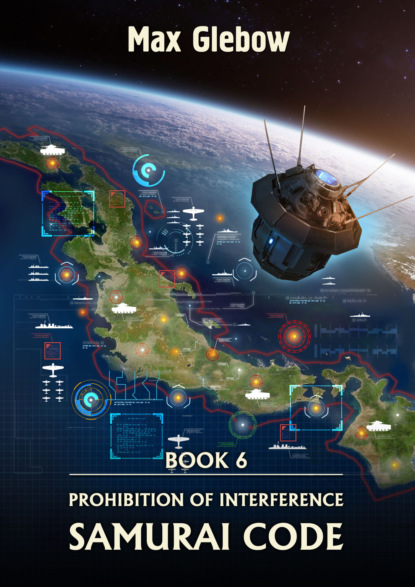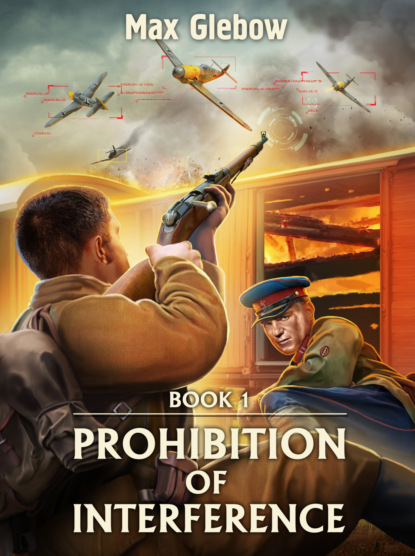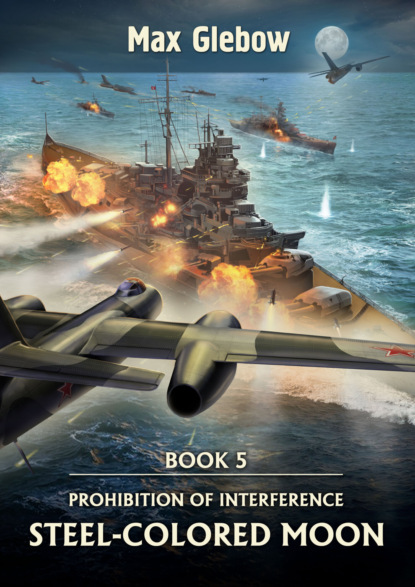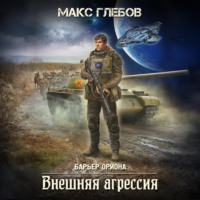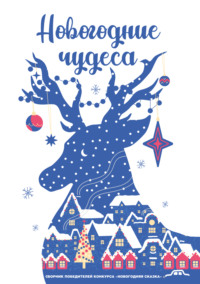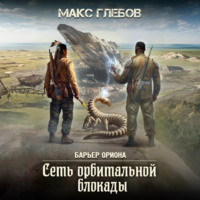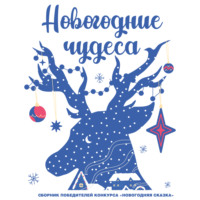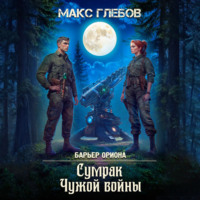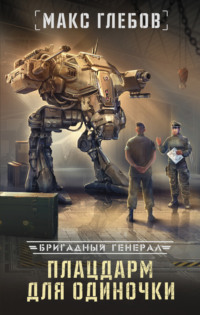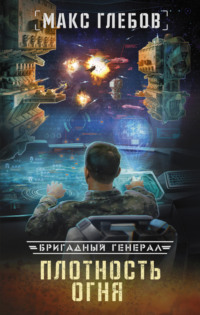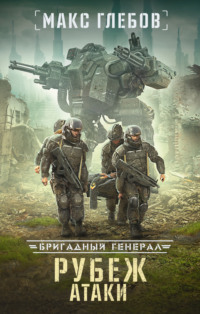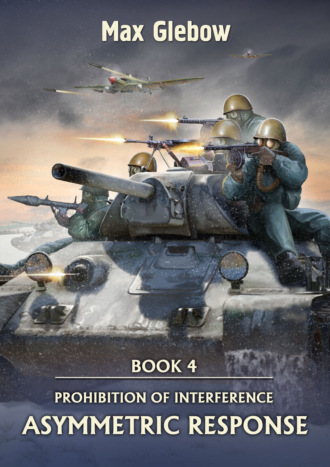
Полная версия
Prohibition of Interference. Book 4. Asymmetric response
“I would like to hear your opinion on this situation,” Shaposhnikov, who never waited for me to comment, broke the silence. “You seem to understand the logic of the German commander quite well, since you were able to predict his actions so accurately.”
Yes, the situation is indeed complicated, since the Chief of the General Staff openly asks the advice of a lieutenant colonel, albeit not the most ordinary one. This is understandable – no one wants to let go of a grand victory that already seems to have been won.
While I made my way to Moscow, I had plenty of time to analyze the situation, but the Red Army had too few resources at its disposal to remedy the worsening situation.
Over the past week, we have not been able to make much progress on either thermite projectiles or fuel-air explosives. General Ustinov's People's Commissariat used everything it could at these developments, but so far only the first prototypes were ready, whose tests were just beginning. And it was too early to even think about cruise missiles. Too much had to be reworked there, so Korolev could hardly put the first products to the test sooner than in a couple of months. The problem had to be solved with the means we already had at our disposal.
“Comrade Marshal, I completely agree with your conclusion that we cannot stop Kleist's tanks with a counter-strike. They have to be beaten off by a stubborn defense full of anti-tank weapons, and our counterstrokes can only have an effect if we apply them on the flanks.”
“But it's all flooded with mustard gas!” Shaposhnikov interrupted me.
“Boris Mikhailovich, we need to break corridors through the chemical barrier sectors. As soon as we do that, the chemical troops will do the decontamination. They have accumulated a lot of bleach and other special solutions. It is important that the Germans have no opportunity to target the chemists. Before you sent me to Vyazma, you mentioned two tank brigades being formed near Kalinin. On leaving, I submitted a report to you with a request to reinforce them with chemical warfare units and to saturate them with protective equipment, including all available hazmat suits.”
“I gave the appropriate orders,” Shaposhnikov nodded. “Do you want to use these units for counterattacks?”
“By and large, they are totally unprepared for this and will probably suffer great losses, but we simply do not have anything more suitable. The Germans left relatively weak infantry divisions to cover the chemical barrier sectors. The farther Kleist's tanks advance, the more their flanks are stretched and the weaker their covering forces are. Newly formed tank brigades must overcome contaminated territory and retain their ability to attack German infantry positions. Immediately behind them will go the chemical units with their decontamination machines and provide passageways for troops protected only by gas masks and anti-mustard gas capes. The Germans will probably continue to use chemical munitions to close the holes we shall have punched in their defenses. It will cause more casualties, but I see no other way to stop Kleist's advance.”
Shaposhnikov walked thoughtfully along the wall with the map.
“The Headquarters of the Supreme High Command rejected your proposal to refrain from retaliatory use of chemical weapons,” the Chief of the General Staff suddenly changed the subject. “With the total shortage of conventional ammunition, we simply cannot afford it, and the very idea of not retaliating has not been understood by the country's leadership. By the end of the day, our air force and artillery will begin treating enemy troops with poison gas shells and bombs. Perhaps this will slow down the advance of Kleist's armored divisions.”
“It won't, Comrade Marshal. They've been ready for this for a long time and they know what we're capable of. If chemical weapons were to be used, it would not be against Kleist, who was fully equipped for chemical warfare, but against the Germans in the pocket. Unlike the First Panzer Group, they were equipped with the means of chemical protection at a minimally sufficient level, and when retreating from Moscow the enemy troops abandoned these "unnecessary" cargoes in the first place, and now they are hardly prepared for chemical attacks. We need to prevent a blow from the pocket toward Kleist, don't we? Mustard gas treatment of the leading edge of the German defense on the inner front of the encirclement would contribute greatly to this. Without decontamination, infantry cannot traverse contaminated areas, and surrounded troops almost certainly do not have the right reagents. ”
I said "almost certainly" for Shaposhnikov. I myself knew exactly how Rommel, Goth, and Göpner were doing with chemical protection and decontamination. They had nothing – everything but gas masks had been abandoned or lost in the retreat.
“Perhaps that does have a rational point,” the Marshal nodded, “but now the Headquarters of the Supreme High Command considers the main task to stop further advance of the enemy's First Panzer Group. Comrade Nagulin, can you repeat the experience of the Rogachev Highway? Then your grenade launcher companies, together with General Zakharov's men, were able to hold back Rommel's tanks and inflict very significant losses on them, and this was in the conditions of an encirclement. Now we have the opportunity to give you much more forces to fulfill this task.”
“It won't work,” I tried to answer as firmly as possible, “In the Rogachev Highway area the Germans were severely restricted by terrain conditions and squeezed in the forest "corridors". It is one thing to defend a kilometer or two front with a concentration of all forces in previously prepared positions, and it is quite another thing to hold a 40-kilometer band of land at defense lines, hastily equipped, moreover, by troops with no real experience in chemical warfare and having no reliable means of protection against blister agents. Positional defense will not help us in this case. We need a successful counterstrike that would force Kleist to stop the offensive and deploy his tanks to parry the threat from the flanks.”
“And if Kleist does not stop and continues to deepen the breakthrough, hoping that his infantry divisions and aviation will not allow us to develop our success?”
“So, another famous German general and his army will end up in the Moscow Pocket,” I allowed myself a wicked chuckle. “Suppose Kleist manages to break through to Army Group Center. And then what? Will he break back through the corridor that has been liberally sprinkled with mustard gas and has already been closed by us? His Panzer Group is the last truly mobile army of the Wehrmacht on the Eastern Front. Never will its commander take such a risk and allow us to cut off his communications and supply lines. And so that Kleist doesn't want to rush forward without looking back, we need, before it's too late, to redeploy to the Gzhatsk direction all the grenade launcher companies formed by Comrade Beria's Commissariat. They showed themselves very well on the Rogachev Highway. Of course, they can't stop five tank divisions, but the grenade launchers will knock out a lot of tanks and slow down the enemy's advance, and then the Germans will stop themselves when we get to their rear.”
“I see you, Lieutenant Colonel, do not doubt for a second the success of flank counterstrokes through mustard gas and lewisite contaminated territory. How can you be so sure?”
“Comrade Marshal, my confidence is grounded on a plan based on an analysis of the situation. I believe it is necessary to create a strong breakthrough group, concentrating in it the formations most prepared for chemical warfare and all the available tanks in reserve. Only then will we be able to cut the ledge that's been formed or create such a meaningful threat to Kleist's communications, that he will be forced to concentrate on repelling it, abandoning his main task,” I went over to the map and took the pointer in my hand. “I propose that a secondary counterstrike be launched from the south by the Bryansk Front, and that the main efforts be concentrated on Kleist's northern flank by launching a counteroffensive from Sychovka to cut the supply lines of the Wehrmacht's First Panzer Group.”
“What you are proposing is a blatant gamble. We’ll have to bet it all on one strike. If it doesn't succeed, we'll simply have nothing left to stop Kleist.”
“Boris Mikhailovich, you know yourself that throwing the reserves under Kleist's tank roller we won't be able to stop him anyway. We may be able to delay the enemy's advance a bit, but with the same disastrous result at the end.”
“I repeat the question,” said Shaposhnikov with pressure, “why are you so sure of the success of the counterattack?”
“Comrade Marshal, I ask your permission to lead the advanced breakthrough group – the same tank brigades reinforced with chemical troops. On the spot I will be able to pinpoint the weakest part of the German defense. We’ll cut a corridor in the chemical barrier, and then the armies of the Kalinin Front will develop success. The Germans do not believe in our ability to act effectively in a chemical contamination zone, and they don't expect a strike on their northern flank. We should not let this opportunity slip away. It's likely that we won't get another chance.”
Chapter 4
Hitler strode nervously along the long table covered with maps. The gloomy interior of the large meeting room was designed in the style of a medieval castle. Normally the Führer liked this environment, but now he felt a growing irritation.
“The unprecedented concentration of effort on the Moscow direction forced us to withdraw our best divisions from other parts of the front, especially from Leningrad region and from the south of Russia,” General Halder continued his report. “This gave the enemy the opportunity to undertake a number of offensive operations, and our weakened units were unable to effectively resist them. Near Leningrad, Soviet troops launched a counteroffensive against Army Group North. Under the threat of encirclement, von Leeb's divisions were forced to abandon Tikhvin and retreat to the western bank of the Volkhov River. Due to the lack of reserves, which had been moved to reinforce von Kleist's troops, the Russians managed to cross the river in several places and gain a foothold. The most difficult situation was at the Kirishi bridgehead, which our 16th Army was trying to hold on the eastern shore. The enemy managed to force General Field Marshal von Leeb to evacuate the bridgehead. During the retreat, part of our troops defending Kirishi[3] were surrounded.”
Hitler knew all this, but he did not interrupt the Chief of General Staff. A weekly general report on the situation on the fronts became a tradition that Fuhrer saw no point in breaking.
“In the south we lost Rostov and Taganrog[4]. Without von Kleist's tanks, the stability of our defense was undermined, and after the Russian crossing of the Don we managed to stabilize the front only on the west bank of the Mius River, where the enemy managed to seize two small bridgeheads, for which now fierce fighting continues. Crimea became another point of extreme tension of our forces. In Kerch and Feodosia the Russians landed marines with a total of up to 50,000 men. Despite heavy losses, they managed to gain a foothold there and attack our troops from the seized bridgeheads. General von Manstein ordered the 46th Infantry Division and the Romanian Mountain Regiment to hold their positions at all costs, but the numerical superiority of the Russians quickly resulted in these forces being cut off on the Kerch Peninsula and almost completely annihilated[5].”
“These are the inevitable costs of a major war,” Hitler could not help but interrupt Halder, “Our losses are only temporary. Once Army Group Center is unblocked and we regroup and resupply, we will regain all lost territory. Move on to the situation in the Moscow direction, Colonel General.”
“At the moment the offensive of von Kleist's first tank group is progressing successfully,” said Halder in a noticeably more cheerful voice. “Competent use of chemical weapons allowed our armored divisions to quickly break the resistance of the Russians in the zone of the main strike and secure the flanks of the tank wedge against enemy counterattacks. The troops note the clear superiority of the Wehrmacht over the Red Army in terms of preparedness for action in chemical warfare, but the resistance of the Soviet troops to the effects of poisonous substances was somewhat higher than we had expected.”
“Thank the Abwehr, General,” bellowed Hitler, completely "forgetting" that he himself had authorized the use of sarin gas in a special operation prepared by the intelligence service. “Thanks to their adventure, we gave the Russians an extra week to prepare. I repeat my demand! All those involved in this unforgivable mistake must redeem themselves with blood!”
“The culprits have been identified, my Führer, and action has been taken on them,” General Yodl immediately responded, “Now they are already mending the consequences of their actions in the trenches on the Eastern Front.”
* * *The rubber of the gas mask, hardened by the cold, bent badly. Kurt Knispel knew that if he didn't warm it up under his overcoat, it would be impossible to put on his gas mask. The chemical warfare in conditions of encirclement and 30-degree frost was a real hell for the troops of Army Group Center who found themselves in a pocket.
Two days ago they were read Hitler's address and announced that von Kleist's valiant tankers had already crushed the outer front of the encirclement and were less than a hundred kilometers away from Rommel, Goth and Göpner's armies, buried in the ground and snow. The Wehrmacht command promised them a quick rescue in a cheerful tone, emphasizing that the Führer had given orders to use all the means available to Germany, including the most modern chemical weapons, to break through to the encircled troops.
Knispel immediately disliked the mention of poison gases. Kurt himself did not take part in World War I – he had not even been born yet – but he had repeatedly heard the stories of veterans who had experienced that nightmare. None of the soldiers in the Moscow Pocket needed to be told that things did not go quite as planned for Army Group Center, to put it mildly, but Kurt could not imagine that things were so bad that Hitler would dare to use combat chemicals. Nevertheless, the Führer decided to do so.
The chemical warfare did not reach the encircled armies immediately. Apparently, it took some time for the Russians to get over the shock of the mustard gas, phosgene, and cyanogen chloride shells and bombs falling on their heads. They recovered fairly quickly, though.
The first chemical attack on the front line of the encircled German forces was delivered by Soviet heavy howitzers. Knispel was already used to the fact that the Russians had a clear shortage of shells, especially large caliber ones. However, they seemed to have a lot of chemical ammunition in reserve, and instead of the usual sparing shelling of late, the Reds dropped many hundreds of "suitcases" of mustard gas and lewisite on the German trenches.
The Russians did not use light-volatile gases. Apparently, their commanders believed that they were not very useful, and saw their main task as the chemical contamination of the area, through which the surrounded could try to break through to their own.
Kurt carefully crumpled the corrugated tube between the gas mask box and the mask with his fingers and shook out the ice frozen from his breath. He assembled the gas mask, checked to see if the rubber blades in the breathing valve were frozen, and, writhing in disgust, pulled the still-cold mask over his face.
Knispel's tank burned up in the battle near the Rogachev Highway. He was the only survivor of the crew. The burns he received were painful, but not dangerous, and a week and a half later Kurt was back in action. By this time there were few combat vehicles left in Army Group Center, but the Panzer-III still had room for one of the best gunners in the Panzerwaffe. Russian grenade launchers more often killed and maimed tankers than completely incapacitating the tanks themselves, so Kurt was not without a job in his specialty.
“Here come the chemists,” Kurt's new commander, Lieutenant Klein, nodded satisfaction as he looked at the approaching soldiers in gas masks and some homemade pants made from anti-mustard gas capes that had survived the retreat.
“Herr Lieutenant, the chemical reconnaissance detachment is ready to move out,” reported the Feldwebel, who commanded five chemists, and handed the officer a map. “This is our route. Our orders are to check the possibility of infantry passage in the three areas marked here.”
The Lieutenant thought for a moment, wondering if his tank had enough fuel, and then nodded slightly at his own thoughts.
He commanded the Feldwebel: “Get on the armor,” and the chemists climbed onto the tank while the crew took their places. Everyone put on their gas masks in advance, as the contaminated terrain began a couple of hundred meters from their position.
This was not the first raid of this kind by Kurt. It seems that Kleist's tanks were indeed approaching the inner front of the encirclement, and the command was actively preparing to strike towards them, trying to find relatively safe corridors to break through. The armies caught in the pocket had practically no means of decontamination, and now they had only to look for gaps in the chemical barriers put up by the Russians.
The tank roared its engine and, scattering snow, moved in the direction indicated by the chemists. In Kurt's opinion, an armored personnel carrier would have been better suited for this task, but there were even fewer armored personnel carriers in the surrounded troops than there were tanks, and besides, the chance of encountering enemy fire was still quite high. In general, the command chose not to take the risk, although for soldiers forced to sit on the armor, this decision was clearly not to their liking.
Within a couple of hours, the chemists stopped the tank three times by tapping on the armor and went to the neutral zone. The distance to the Russian trenches remained quite long – the Reds did not want to go into territory that they themselves had flooded with mustard gas. As Knispel realized, the chemists were trying to determine the width of this contaminated zone. Two of them were carrying rather cumbersome chemical reconnaissance equipment. The situation was complicated by the fact that in the event of shelling the soldiers could not lie down in contaminated territory – the snow and soil, soaked with poison, could kill them more surely than a bullet or a shrapnel. Therefore, the chemists were in no hurry to approach the Russian trenches, and they had no such task.
Each time he returned to the tank, the Feldwebel only shook his head in the negative and his subordinates climbed onto the armor in silence, while the Lieutenant gave the driver the order to move on.
The fourth time was more successful. Anyway, the chemist squad went quite far and didn't get back until about 40 minutes later. Before that, it took them 10–15 minutes to realize that there were no passages accessible to infantry in the places they were checking.
“We found a way through,” muttered the Feldwebel from under his gas mask, “I won't say the gap is wide, but with minimal decontamination the infantry will pass. The Russian artillerymen must have made a mistake and shifted their sights. The place is undoubtedly promising…”
“Air!” Kurt yelled as he saw the dark dots of planes on the horizon.
“Maybe it's our planes?” The Feldwebel uncertainly suggested, trying to see details through the glasses of his gas mask, which were beginning to mist up.
No one answered him. The tank, located under the trees of a small grove, had a good chance of remaining unnoticed, and the Lieutenant quite rightly decided not to move and wait for the situation to become clearer. The planes, whoever they were, clearly didn't come here because of them.
“It's the Russian attack planes,” one of the chemists identified the enemy, “They're flying to the left, and they don't seem to see us.”
Suddenly, behind the ILs, two more dots emerged from the high clouds and rushed down in a steep dive.
“And these are ours,” said the Feldwebel with satisfaction; he had managed to remove the gas mask from his face and now, without taking off his gloves, was wiping it with a damp-looking piece of cloth. His subordinates immediately followed his example – it seemed that the reconnaissance was over for the day.
The attack by the Messerschmitts did not go unnoticed. Tracks of machine-gun bursts stretched from the attack planes toward them, but the Russians did not appear to be able to get any hits. But the Germans did not miss their chance. The IL-2, slightly behind the group, ceased fire. A few flashes flickered across its hull, and the plane slowly tipped onto its wing. Shrouded in smoke, it quickly hurtled toward the ground, but suddenly a wide white trail stretched behind the doomed plane.
“Gas!” yelled the Feldwebel, pulling back his gas mask, which he had almost put away.
The pilot of the downed attack aircraft was apparently still alive and opened the nozzles of the airborne spray device. Half a ton of mustard gas mixed with hard-to-freeze solvents formed a huge cloud behind the plane within seconds, which was now spreading wider and wider and drifting toward the grove where Kurt's tank had taken cover.
“Start the engine!” Lieutenant Klein shouted as he fell inside the tank and slammed the hatch doors.
In the sky, meanwhile, there were new actors – two Yak-1 fighters. It was unclear why they fell behind the attack aircraft they were covering, but now the Russian pilots were trying to come to the aid of their comrades.
How the battle ended, Kurt did not see, and only when he returned to his unit did he witness a brief conversation between the tank commander and the chemist Feldwebel.
“We barely had time to get out of there, or else you and I, Herr Lieutenant, would have had to scrub your tank of mustard gas and treat each other with this stinking crap from the anti-chemical bags. None of us have full hazmat suits.”
“Well, then, this time we were lucky,” the Lieutenant took the chemist's words calmly. “How did it end in the air?”
“The Messerschmitts took down another attack plane, and I didn't see any more. Worse is another thing. These Russians seemed to be flying in to spray our trenches with chemicals, and when the M-109s came at them, they started to get rid of the stuff by opening the airborne spray devices.”
“What's wrong with that?” The Lieutenant was flaccidly surprised. “Since they didn't deliver the chemical contamination to our trenches, the infantrymen must deliver a case of schnapps to the fighters.”
“This victory for the Luftwaffe is going to cost us,” the Feldwebel grinned angrily. “The Russian attack planes completely flooded the corridor we scouted with mustard gas. So get ready, Herr Lieutenant. Tomorrow, or maybe even today, the command will drive us again to the raid.”
* * *My modest wish to reinforce the two tank brigades assigned to me with chemical defense units was granted by the Headquarters of the Supreme High Command with an unexpected vast sweep.
Shaposhnikov decided not to be penny wise, and each of the brigades received two separate chemical defense battalions from the General Command's reserve, with all the units and equipment due to them – decontamination vehicles, decontamination units for clothing and equipment, chemical reconnaissance platoons and combat support companies.
“Comrade Marshal, I got everything I needed in terms of anti-chemical protection. Thank you for your understanding. Nevertheless, this is not enough for the success of the operation,” I decided that if they give it to me, I should take everything my grasping hands could reach, “The enemy will quickly see what our counterstrike can lead to and will counter it fiercely. In particular, the Germans would certainly launch air and artillery strikes against the chemical defense battalions, which will be busy decontaminating the passages for Comrade Konev's armies. I must be able to counteract these attempts effectively. The regular air defense capabilities of tank brigades are totally inadequate to cover the advancing tanks and protect the chemists at the same time.”


